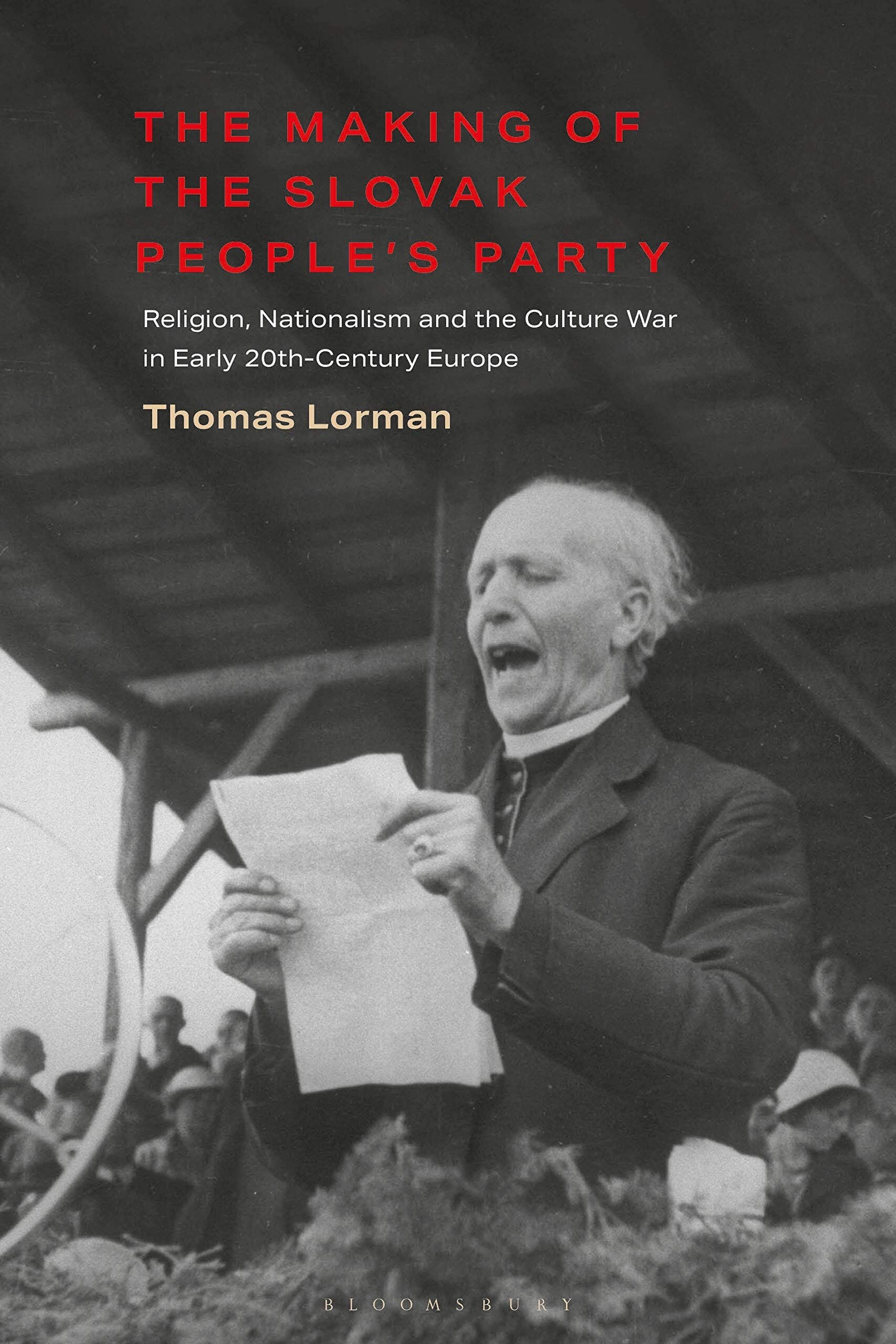Thomas Lorman wins George Blazyca prize for 'The Making of the Slovak People’s Party'
BASEES is delighted to announce that Dr Thomas Lorman (University College London) has been awarded the George Blazyca prize, 2019, for his work, The Making of the Slovak People’s Party: Religion, Nationalism and the Culture War in Early 20th-Century Europe (Bloomsbury Academic, 2019)
Lorman’s book explores the centrality of Catholicism to Slovak nationalism through an analysis of the Slovak People’s Party. By pushing the story of the party’s origins back to before the formal establishment of a party of that name, and by examining the intellectual trajectories of the people who formed it, he provides profound insights into the nature of the political right in Central Europe, both past and present. The intermingling of religion and ethnicity began when Magyar-speaking officials, representing a nevertheless mainly Catholic Hungarian state, imposed ‘liberal’ civil marriage on Slovak-speaking, traditionalist Catholic clerics. In the protracted story, which Lorman develops elegantly, with painstaking and meticulous research across Hungarian and Slovak sources, mainly Catholic Slovak activists, feeling themselves under assault, gravitated first to the Catholic People’s Party of 1894, which was particularly strong in the Slovak highlands, before creating, in 1905 and relaunching in 1913, the Slovak People’s Party itself, with a somewhat stronger, and gradually increasing, national agenda. The enemy from the start was liberalism and its perceived attack on Catholicism and Slovaks alike, and liberalism was represented first by Hungary, and then, with telling parallels, the Czechoslovak state. Also common to the party, both before and after 1918, were its antisemitism, its radicalism, its disdain for democracy, its cult of youth and its preference for ambiguous rhetoric. Lorman is equally at home identifying the policy differences between the key individuals in the story (Hlinka, Tiso, Mach, Skyčák) and portraying the emergence of nineteenth-century Slovak Catholic organisations (religious societies, sodalities, clubs, but also banks and cooperatives) which provided the popular groundswell for Slovak nationalism. By breaching the 1918 caesura, his book is a major contribution not only to Slovak (and therefore of course Hungarian and Czechoslovak) history, but also to our understanding of right-wing politics in the region.

